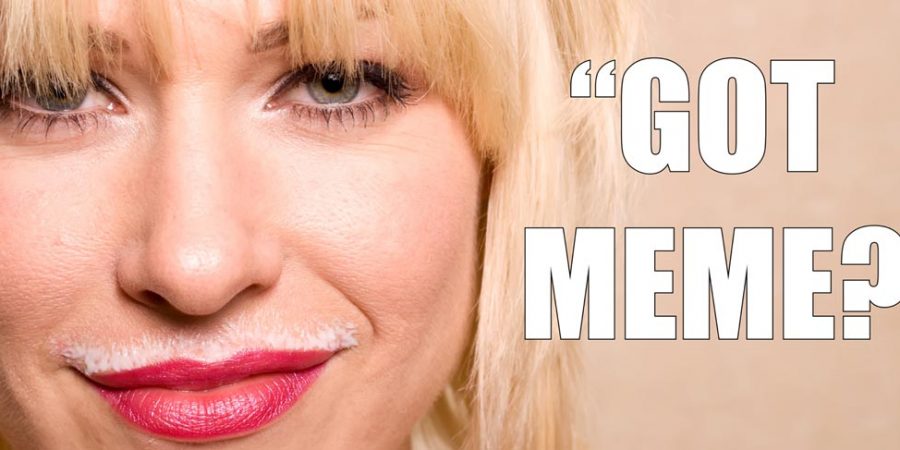The Do’s, Don’ts & Ideas Behind Business Memes
Are you meme amenable? If the term hasn’t made it into your lexicon, you may not ‘get it’ right away. In fact, you may think memes are about as appropriate as your kids’ drawings or pets’ pictures in business marketing.
Maybe some Millenial on your team has suggested it would be cool to use memes on the company blog or social media networks. Even if your first reaction is a resounding, “Hell, no!”, read the following to feel more informed. You may even be convinced how meme marketing might be right for your business.
Memes are ideas, sayings and images that spread virally from one person to another, giving each user a chuckle and comfortable sense of being in the know. Your customers would enjoy that feeling, right? Remember the first time you saw the billboard of someone with a milk mustache with the caption, “Got Milk?” Suddenly everyone was riffing off of the new phrase on everything from, “Got Cookies?” to Putin with a milk mustache. That was a meme going mainstream even before the Worldwide Web.
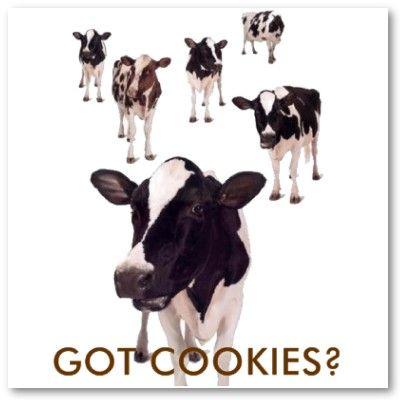
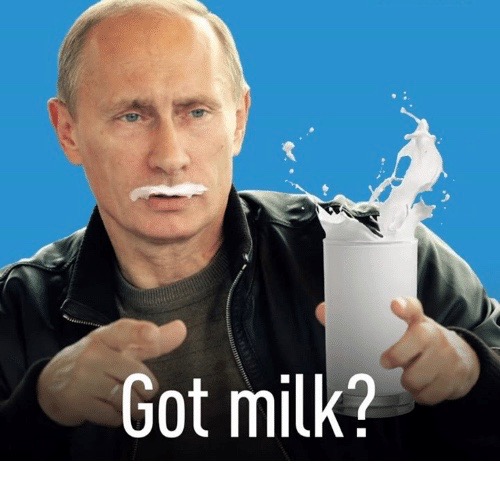
Behavioral memes are acts or gestures that enter the culture and catch on. Take, for example, the phrase “drop the mic” that led to the open-handed letting go now seen universally as meaning “end of discussion, I’m outta here.” Verizon took that meme concept and ran with it with one of their recent ad campaigns.
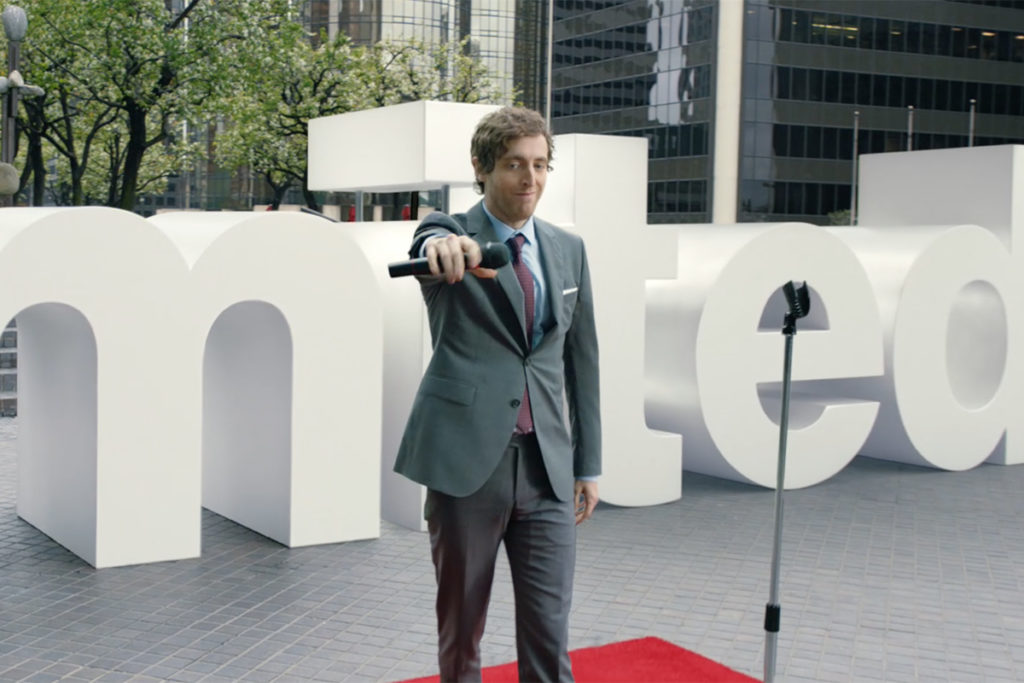
For purposes of business and brand marketing, we’re talking about online meme production that follows a standard format: a well-known image overprinted with a clever caption in bold white caps. They are intended to be funny, sarcastic and recognizable to a particular group of those in the know.
Typical meme theme
One popular way of making memes is to pair a shot from a movie or cartoon with a caption starting with the word When. Usually the picture features a weird, extreme and funny facial expression and the caption refers to an attitude or situation most people can relate to.

They tend to be situations most people have experienced and can agree on but maybe never thought of expressing it that particular way. We’ll see later how to adapt the When memes to a plumbing business. But first, here are five things to consider in deciding if memes are meant for you:
Are your customers accustomed to memes?
Memes are not for everyone. People who spend lots of time on the Internet may appreciate jokes that seem silly or juvenile to the uninitiated. Older users may appreciate the novelty but miss the nuance. That can be very annoying.
If you want to convey a serious, somber image, memes may be counterproductive. If, however, your brand is youthful and energetic, meme away. Demographics affect response. While most memes look alike, appreciation from the international community varies from country to country. Research your target demographic to see what they post online. Don’t be too serious. Memes appeal by being silly and ludicrous. Using them occasionally shows your human side and proves you can have fun.
Understand the meaning of memes
Most memes use simple formulas you plug in with niche-specific references. For example, if you have a plumbing company, The Success Kid holding a fistful of sand could have the caption, “When Your Toilet Works Again.”
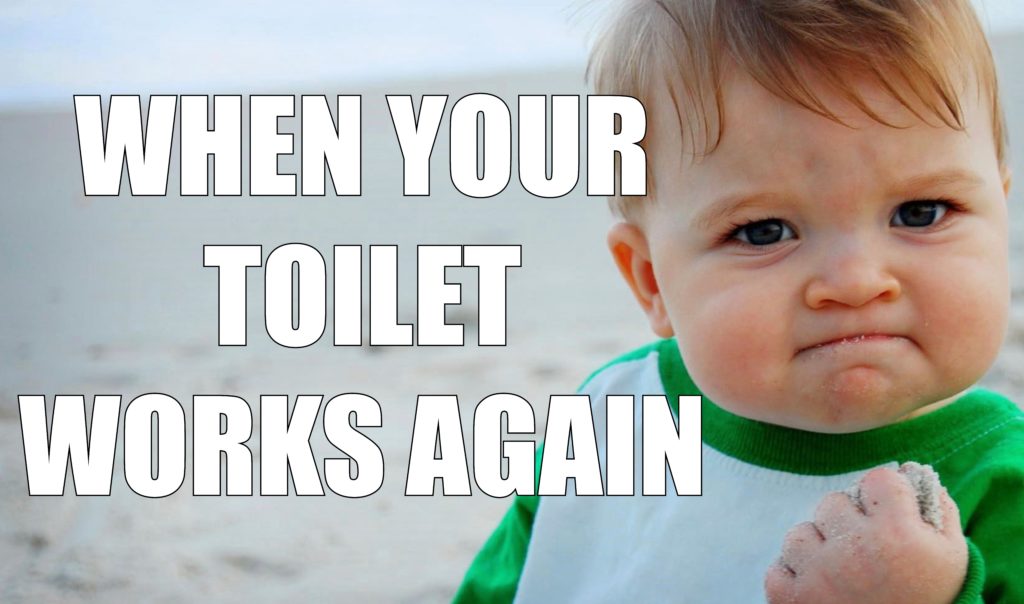
The quickest way to look dumb to Internet subcultures is to use a favorite meme the wrong way. You would never want a caption over The Success Kid that said “Call Us If He Throws Sand in the Bowl.” It’s blatantly promotional and everyone knows this is an established meme that means “Yes! Did It!” Misusing memes can make you look lazy and even incompetent. Take time to consult Know Your Meme, a huge database which explains every esoteric meme in existence.
Memes can sound dated (and dumb)
Your readers can spot inauthenticity so don’t try too hard to be cool. Using the newest memes to communicate with young people is risky if you are not on top of trends. It’s the “Oh, Daaaaad” syndrome. Planking, for example, is so dead and so buried.
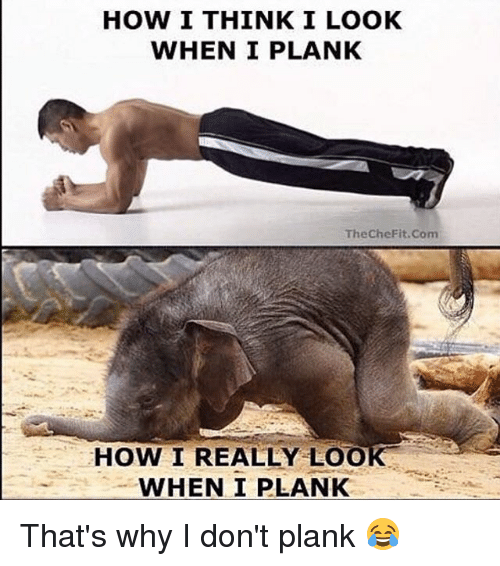
However, using the right outdated meme can sometimes be a nice bit of nostalgia.
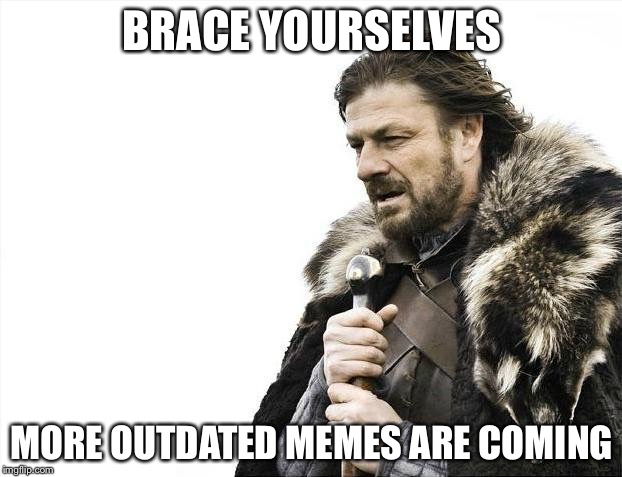
Even if your brand is suited to memes and your audience loves them, don’t overdo. Think of them as firecrackers…powerful, entertaining, attention-grabbing and only brought out for special occasions.
Strike while the irony is hot
Meme culture moves fast, influenced by politics, celebrities, sports and scandals. Take the cultural pulse and cash in on current events. The Dallas Cowboys are morphing the You Like That meme into the You Like Dak meme to promote their current quarterback.
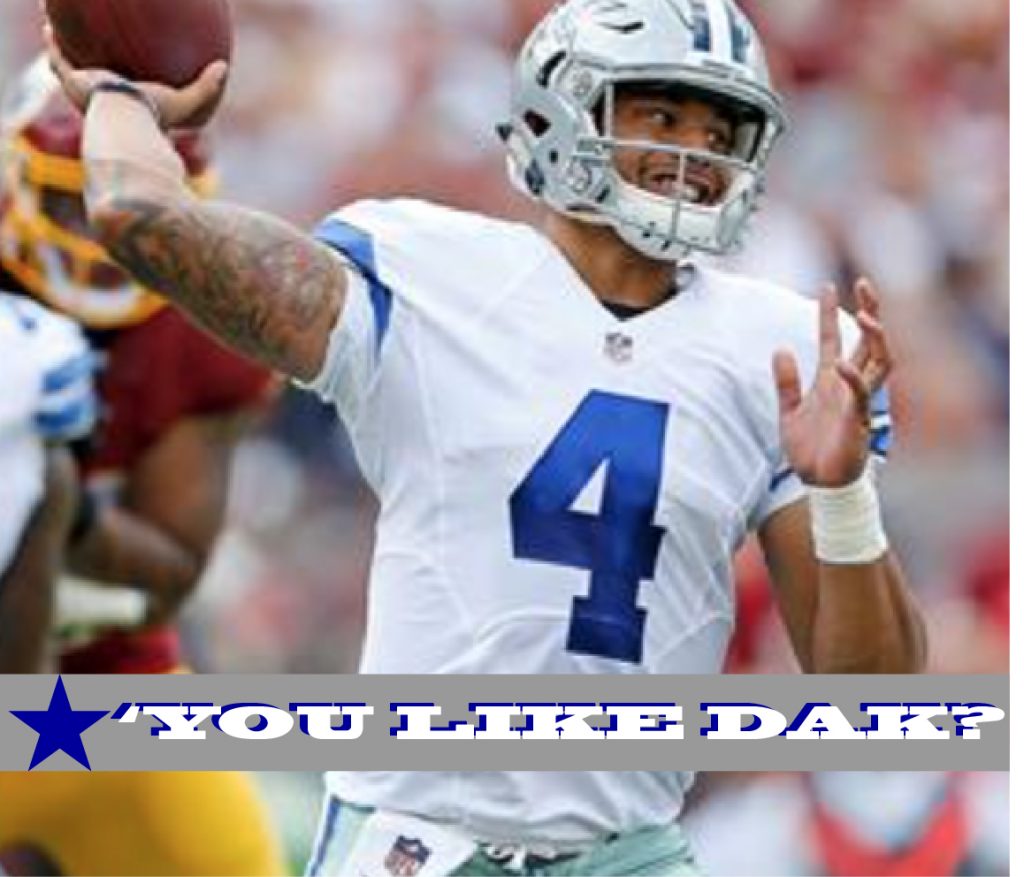
One word of caution: I would avoid political memes. It’s a great way to alienate half of your current and potential customers. While it is a great temptation to express your political beliefs, as a business owner, just don’t do it!
Legal Memifications
Creating an original meme with your own photos and verbiage is the easiest way to be sure you are not infringing on someone’s copyright. Using a trendy viral video or image and parodying with your own captions should be okay, too. Anyone can upload these images from a meme generator site, so the copyright status is unclear. With millions of these same images all over the Internet, the rights holders can’t go after everyone.
Using memes to call attention to a brand is like renting a chainsaw to trim a hundred-year-old live oak. Looks easy enough, but could be an irreversible disaster. While some people have the knack and wit to meme on their own social media channels, when it comes to meme production for your business, it’s probably best to call a professional. Our meme writing experts can develop a meme strategy especially for your brand and social media audience.
